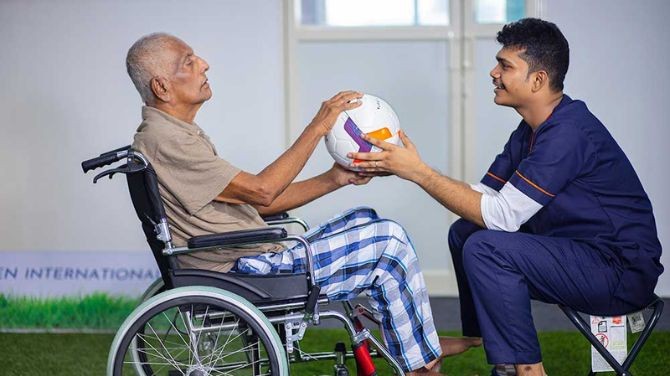Physiotherapy plays a crucial role in the rehabilitation and recovery of stroke patients. Stroke is a medical condition that occurs when there is a disruption of blood flow to the brain, leading to damage to brain cells. The extent and location of this damage can result in a wide range of physical and functional impairments. Physiotherapy is an essential component of the multidisciplinary approach to stroke care, and its importance for stroke patients cannot be overstated. Here are some key reasons why physiotherapy is important for stroke patients:
-
Motor Function Recovery: Stroke often leads to weakness or paralysis on one side of the body (hemiparesis or hemiplegia). Physiotherapy helps stroke patients regain strength, coordination, and motor function through targeted exercises and activities. This is essential for regaining independence in activities of daily living.
-
Mobility Improvement: Many stroke survivors experience difficulty with walking and balance. Physiotherapists work on improving mobility and gait by addressing issues like muscle tightness, joint stiffness, and poor posture. This helps stroke patients regain the ability to walk and move around safely.
-
Spasticity Management: Some stroke survivors develop muscle spasticity or tightness, which can be painful and restrict movement. Physiotherapy techniques, such as stretching exercises and manual therapy, help manage and reduce spasticity, improving comfort and range of motion.
-
Fall Prevention: Stroke patients are at an increased risk of falls due to impaired balance and coordination. Physiotherapists can implement exercises and balance training to reduce the risk of falls and enhance safety during mobility.
-
Functional Independence: Physiotherapy focuses on improving a stroke patient's ability to perform daily activities independently. This includes tasks like dressing, bathing, and eating, which are crucial for maintaining quality of life.
-
Pain Management: Stroke survivors may experience pain, particularly in areas affected by the stroke or as a result of muscle imbalances. Physiotherapy interventions can help alleviate pain and discomfort through techniques like massage, heat therapy, and gentle exercises.
-
Education and Lifestyle Modification: Physiotherapists educate stroke patients and their caregivers about stroke risk factors, proper body mechanics, and strategies for preventing future strokes. They also provide guidance on adaptive equipment and home modifications to support independence.
-
Psychological Well-being: Stroke recovery can be emotionally challenging. Physiotherapy sessions provide encouragement, motivation, and a sense of accomplishment, which can positively impact a patient's mental health and overall well-being.
-
Prevention of Complications: Prolonged immobility can lead to secondary complications such as pressure sores, deep vein thrombosis, and muscle contractures. Physiotherapy helps prevent these issues by promoting movement and circulation.
-
Long-Term Recovery: Stroke recovery is an ongoing process, and physiotherapy can be instrumental in ensuring that patients continue to make progress and maintain their functional gains over time.
In summary, physiotherapy is indispensable in the comprehensive care of stroke patients. It helps improve physical function, mobility, and overall quality of life while also playing a role in preventing secondary complications and supporting emotional well-being. A personalized physiotherapy program tailored to the individual needs of each stroke patient can significantly enhance their chances of regaining independence and leading a fulfilling life post-stroke.









